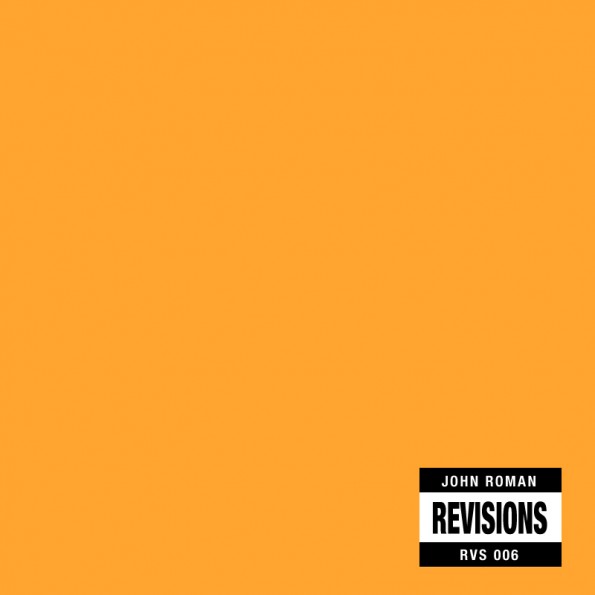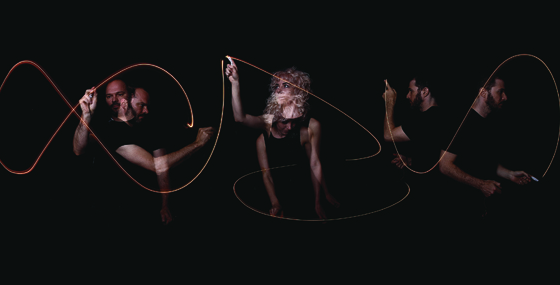REVISIONS006: Bubba Sparxxx and The Beastie Boys. I remember looking through my highschool CD collection; the underground, the mainstream, the old school, the new school, the hardcore Rap, the softer R&B. But of all the source albums I went through in creating the REVISIONS series, Deliverance by Bubba Sparxxx might have been the lowest on the expectations totem. Well, I was wrong.
DOWNLOAD: JOHN ROMAN – REVISIONS006
01. "The Nights I Missed Out"
A revision of Bubba Sparxxx's Deliverance
[soundcloud url="https://api.soundcloud.com/tracks/64492449" iframe="true" /]
02. "The Blast"
A revision of the Beastie Boys' To The 5 Boroughs
[soundcloud url="https://api.soundcloud.com/tracks/64492648" iframe="true" /]
And that’s the best thing about sampling to me; the surprises, the happy accidents. There’s something inherently fatalistic about sample-based producers; the record store is a spiritual place, the album artwork filled with cosmic clues to guide towards that special loop or break. And it can take minutes or even years to find, but it’s always out there, somewhere, only a matter of circumstance and coincidence.
But sample-based producers aren’t entirely dependent on fate. There’s a great skill in recognizing the potential of sounds, seeing possibility outside of purpose, and this understanding grows by developing technique. The more proficient you become with your tools, the more material you realize you have.
I started working on “The Nights I Missed Out” about six months ago, and after finding the vocal hook from the intro of Bubba’s track “Warrant” I’d hit a wall with the rest of the source album. Unlike some of the previous EPs there weren’t any clear isolated drum or bass sounds, none that seemed too interesting at least. There weren’t many compatible melodic sounds either; a lot of Deliverance’s southern twang doesn’t exactly vibe with UK garage or techno. But despite all this, I couldn’t help coming back to the same vocal hook, re-opening the project and re-listening.
In the meantime I did remixes for Proxy and Harvard Bass, some of my most experimental in terms of sampling techniques. For both, I started by doing a rough remix, bouncing my own stems then doing another remix. In the case of “Shut Up!”, I remixed my own remix of my own remix (three sets of stems). I also drew on some very obscure and unconventional sources in each; samples that required a lot of EQ, compression, filter, and FX to fit properly in the mix. But through this experimentation, and struggle, I’d developed new approaches for the tools I’d been using routinely.
So I returned to “The Nights I Missed Out”, a lonely vocal hook and some drum sketches, and with a new perspective and competency, revisited the source album for sounds. I noticed more, saw more potential. Previously listening to Bubba’s “Nowhere” I was focused more on its droning choral sample, but now I noticed a strange wooden percussion at the beginning (which you can from 0:58 onward in TNIMO). Previously listening to “Like It Or Not” I heard an uninspiring, grid-locked drum loop, but this time I chopped it up, reversed parts, pitched down drum hits and re-arranged it into the shuffling, industrial pattern that anchors the track. There were really no lead melodic samples in the source album, so instead I created one: I took the first bass note in “Warrant”, and with some EQ, filter and delay was able to reproduce a rhodes-esque keys sound by playing in the higher octaves via MIDI.
This isn’t to say that complexity defines a sample’s value, some of the best and most memorable samples are straightforward loops, but by building a repetoire of techniques the distinction between the moments that require restraint and the moments that require complexity becomes clearer. It changes the sampler’s role from passive listening to active engagement; it gives the producer control, independent from fate. And when the minutes between finding that perfect sample becomes months, or even years, it’s a necessary skill to have.












